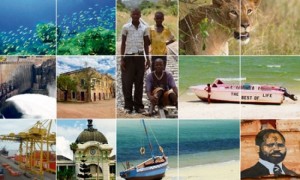 One of the fastest expanding economies in the world is packed with natural, untapped potential for growth
One of the fastest expanding economies in the world is packed with natural, untapped potential for growth
Mozambique has transformed its political and economic system from a one-party state to a constitutional democracy, and its economy from a centrally planned to a market-based system, to become one of the fastest growing economies in the world.
A 16-year civil war between government forces and rebels ended in 1992 leaving the former Portuguese colony in chaos, with an estimated 1 million people dead and over 5 million displaced refugees, but the post-war nation has gone to great lengths to ensure people focus on the present day and its future, and not dwell on a period of its past. It is also making a shift in its fiscal dependence from the aid sector to revenue from industry – an economic necessity given the decline in traditional donors as a consequence of the global economic slowdown.
Over the past decade, the country’s GDP has been expanding between 6-8 per cent a year and inflation is falling. Although agriculture is the lifeblood of the country’s economy and accounts for 31.5 per cent of its GDP, the service industry is gaining in importance for Mozambique’s income with ongoing growth in its telecoms and banking sector. However, the largest area of economic development is linked to the country’s natural resources of agricultural land, coal, natural gas and water.
Mozambique is where one of the biggest natural gas finds in a decade has been made, discovering $800 billion-worth of natural gas off the country’s coast. In addition, the resurrection of the coal exporting industry and the undeveloped reserves have led to the development of major coal export projects.
There is also investment being made in the Chicamba and Mavuzi hydroelectric plants that were abandoned in 1978. With the majority of the country’s electricity generated by hydroelectric power stations and the existing export of electricity to Zimbabwe and South Africa, there are now plans to construct a transmission line to Malawi.
Consequently, international attention has turned to Mozambique’s natural resources, and that has led to a confident outlook for the country’s economy.
Carlos dos Santos, Mozambique’s Ambassador to the UK, says foreign investment in natural resources will in turn develop other industries and improve the lives of Mozambicans: “With the new resources found in the country, we boost all the sectors that have been developing in the economy: agriculture, infrastructure development, transport and communications, tourism, fisheries, all these other sectors.”
However, the biggest issue in exploiting the untapped natural resources is the existing transport infrastructure, which is currently unable to meet rising demand. Projects totalling $17 billion are being developed, including increased rail links to ports and expanding port capacities to allow for greater exports. Poor infrastructure has prevented Mozambique from meeting its export capability, but development will open the potential for trade and private business within the country, which in turn will help alleviate poverty.
Mozambique also has a burgeoning tourism industry and as the infrastructure improves so do opportunities for investment. Mr dos Santos believes the country’s varied environment means visitors can get more for their money. “You can look at tourism. Eco-tourism, cultural tourism, sea and sand, wildlife, nature – you can find it all in Mozambique. It is really a vast country that has so much potential,” he says.















